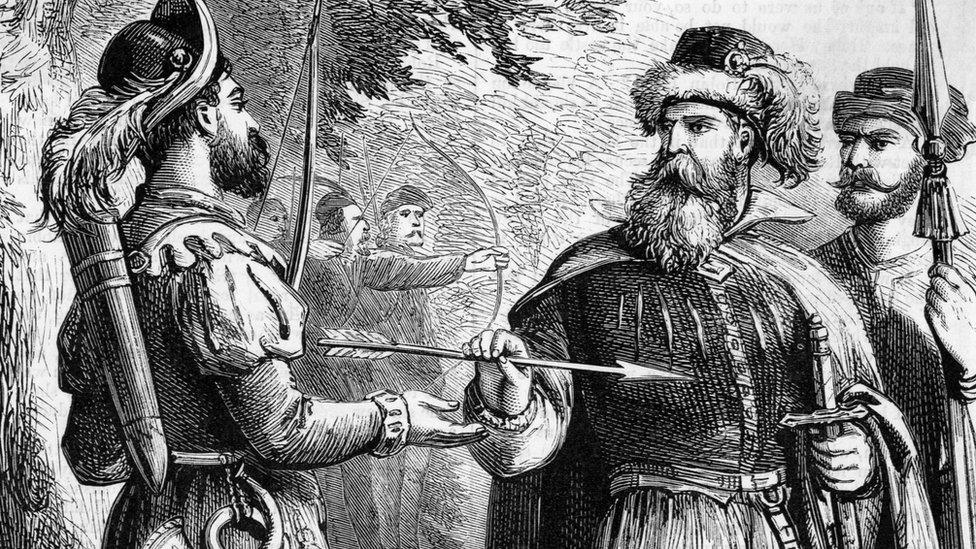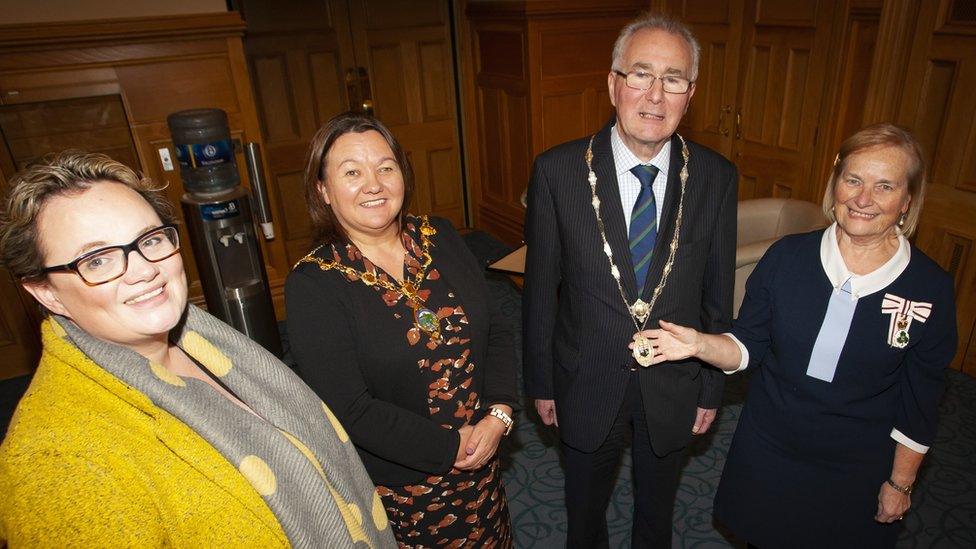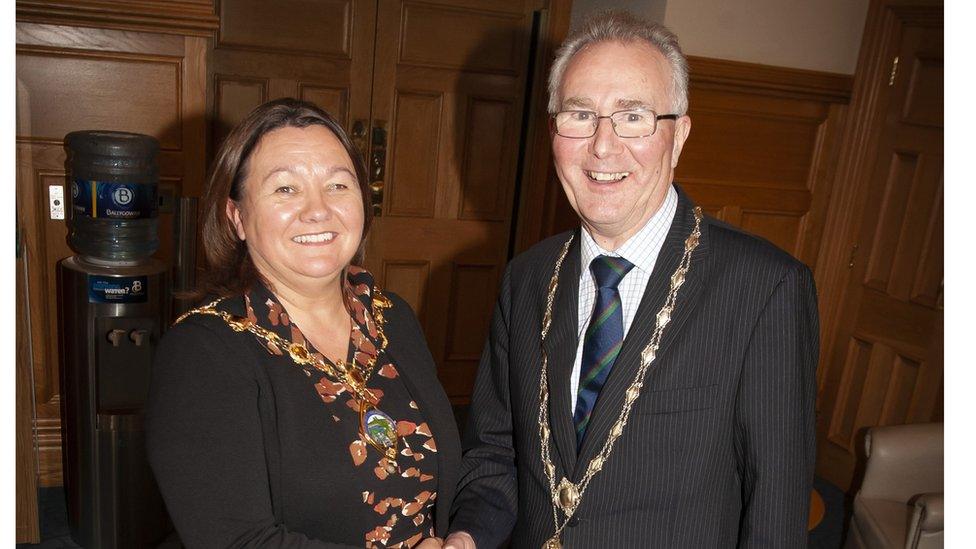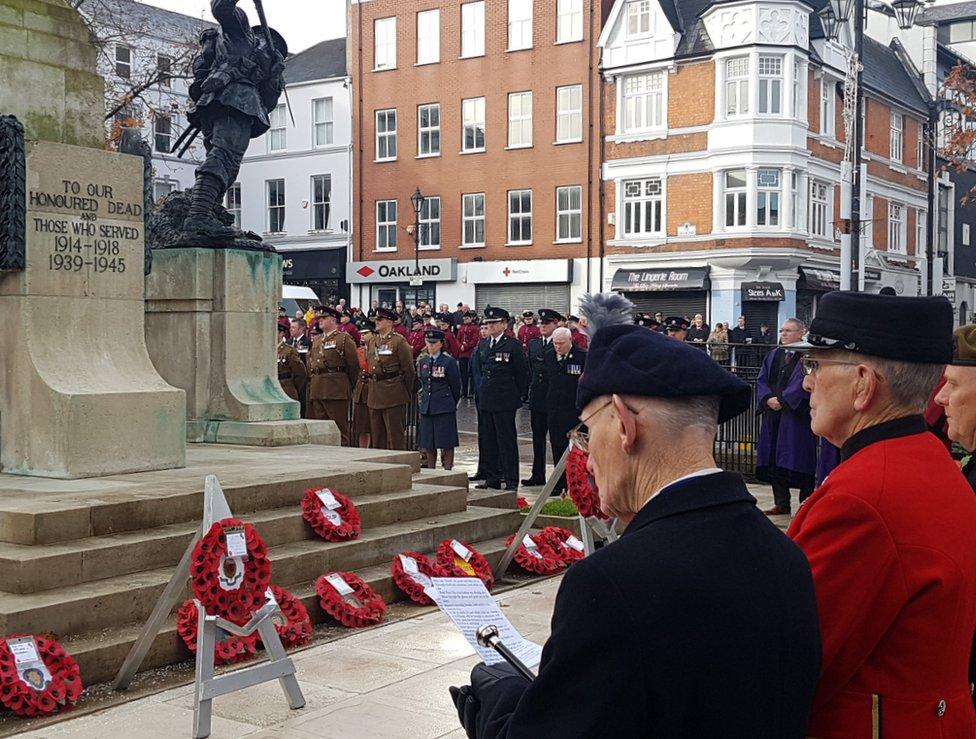High sheriff: The modern role of a historic public office
- Published

Robin Hood receiving the prize arrow from the Sheriff of Nottingham, arguably history's most well known High Sheriff
It's a centuries-old public office that exists to this day but that many may know little about.
And it comes with a title some might associate more with Robin Hood or the Wild West than to life in the modern day.
Every county in Northern Ireland - as well as the cities of Belfast and Londonderry - is served by a High Sheriff.
They are appointed by the Secretary of State on behalf of the Crown.

Richard Doherty, who was installed as Londonderry's High Sheriff in January, succeeds Julia Kee (pictured far left). Also pictured is Mayor of Derry Michaela Boyle and Dr Angela Garvey (far right), Lord Lieutenant of the County Borough of Londonderry
Historian Richard Doherty was installed as the High Sheriff of the city of Derry for 2020 at the city's Guildhall in early January.
"It's now a ceremonial role," he told BBC News NI. "But going back over the centuries it really was very close to the commonly held interpretation of a sheriff - like Robin Hood's nemesis in Nottingham.
"In times gone by, it essentially was a single officer under the Crown responsible for enforcing law," he said.
Historically, he added, when judges passed sentence, it was the sheriff's duty to carry this out.
"For example, when public hangings were still common place, it literally was an executive role," he said.

Mr Doherty said the role no longer has the executive powers it once carried and is now purely ceremonial
While The office of city sheriff has its origins in the 20th Century, the Derry county high sheriff role dates back to the 1700s.
Sheriff's Mountain, a hill which looms large over the city, was once home to the official quarters of the eponymous office holder.
The role no longer holds an official residence or quarters, and office holders are not paid for their service.
In Northern Ireland, the role mirrors that of the 55 high sheriffs in England and Wales.
There, the position dates back to Saxon times, when the "Shire Reeve" reported to the king on matters of law and for taxes due to the Crown.
Now their duties are solely ceremonial.

One of Mr Doherty's first official duties was to greet the Princess Royal during a trip to Derry
Northern Ireland's sheriff appointments are published in the official Crown newspaper, the London Gazette, each January.
Formal duties include attending royal visits or visits by heads of state in their county or city.
One of the new high sheriff's first official duties was welcoming Princess Anne to the city during her visit to Northern Ireland last month.
Mr Doherty said he was surprised to have been put forward for the role and was looking forward to the year ahead.

Former High Sheriff Julia Kee said laying a wreath at the war memorial at the Diamond in Londonderry was the highlight of her year as High Sheriff
He succeeds Julia Kee, who served as Derry's high sheriff last year.
"There were about a dozen events over the course of the year where I attended in an official capacity," she said.
Those included laying a wreath at the cenotaph on remembrance Sunday, and meeting dignitaries and Royals during visits to the city.
"It was lovely, really nice to do it, to be honest I felt quite privileged," she said.